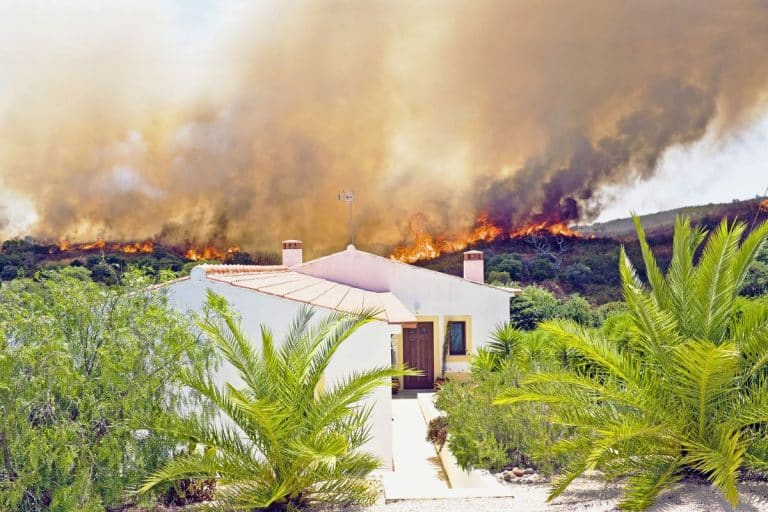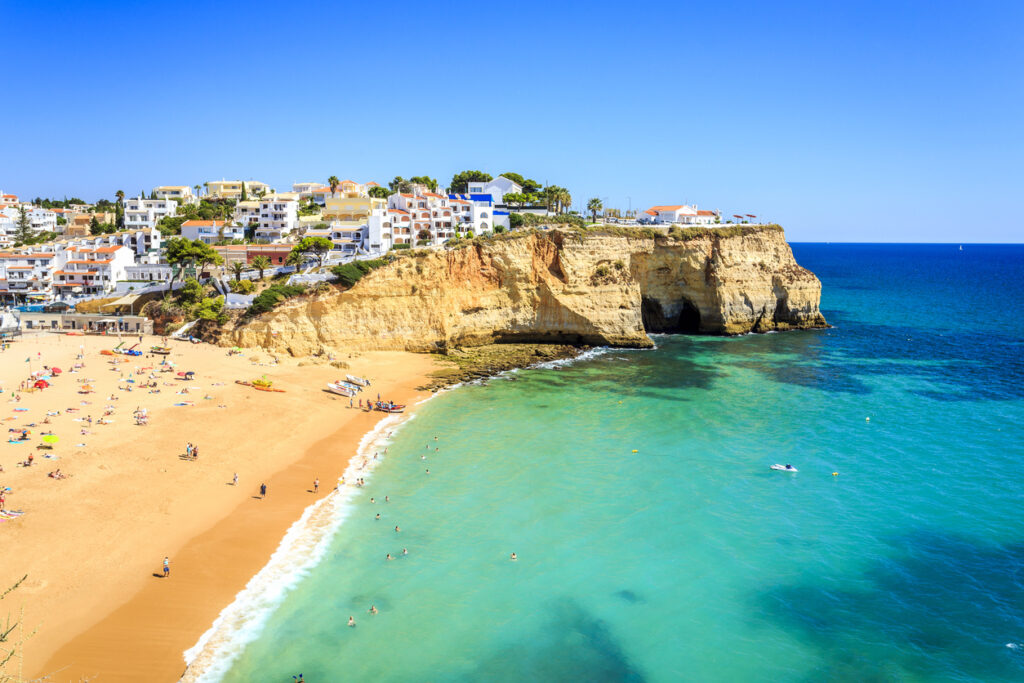Wildfires are raging in Portugal once more. This time the fires have broken out near the well-known tourist destination of Algarve in southern Portugal.
The fire began on Saturday, August 5, in the region of Odemira, in the north of the Algarve, and has since spread southward.
More than 1,400 people have already been evacuated from their homes, while more than 800 firefighters are battling the flames.
The fire has already burned nearly 6,700 hectares of land and is difficult to contain due to rising temperatures and strong winds.
Helder Guerreiro, the mayor of Odemira, described the situation as “critical, difficult, and complex”.
“The weather conditions we are going to experience in the coming days means any small occurrence (fire) could become a big one,” Civil Protection secretary of state Patricia Gaspar told reporters.
What is affected by the wildfires?
On the west coast of Portugal, in the Alentejo region, the municipality of Odemira is home to the largest wildfire. Since then, it has been spreading southward and is already present in the inland forests of the Algarve.
In addition to evacuating 19 villages, four tourist shelters and a campsite, some local highways has been sealed off.
The Portuguese meteorological authority IPMA has declared the highest alert level for forest fires for more than half of the country. Three regions of the country — Braganca, Castelo Branco and Guarda — are currently on the highest alert due to intense heat.
At a press conference, Civil Protection Commander Jose Ribeiro said, “It is a worrying situation,” adding that there were two active fronts, one of which was heading toward Monchique, a forested mountainous region in the Algarve.
The thermal springs and hotels in Monchique, which experienced its last fire in 2018, are popular with locals and visitors alike.
The British Met Office has also issued a weather bulletin for Spain, Portugal and Africa.
“Temperatures have increased across Spain, Portugal and North Africa in recent days, widely into the mid 30s C, if not into the low to mid 40s C”, the Met Office’s statement, released via X, read.
“The heat is expected to extend further north and east by midweek, before temperatures return closer to average by the weekend.”
Is it safe to travel to Portugal?
The Portuguese Interior Minister confirmed Monday (Aug. 7) that the government will not sound the alarm at this time, as forest fires raged in some southern regions of the country.
“Either because of the response of the (teams), or because of the number of fires, or because of the change that seems to be positive in the movement of winds – and also because there has been, from yesterday to today, a relative replacement of nocturnal humidity, for now the alert situation will not be ordered,” minister José Luís Carneiro told reporters yesterday.
Forest fires can break out anywhere in Portugal, according to the UK Foreign Office (FCDO) guide, which has not been updated to reflect recent fires. There is an increased risk of fires during hot and dry weather. The increased frequency of fires is a result of drought and hot temperatures.
Forest fires are incredibly unpredictable and destructive. For safety reasons, the Portuguese government may order an evacuation and restrict road traffic. What you should do:
- Get to know the local emergency and safety procedures.
- follow the recommendations of the Portuguese authorities.
- If you encounter a wildfire, dial 112 for emergency services.
“Starting a forest fire, even if it is by accident, is illegal in Portugal.”
At this time, no trips to Portugal appear to have been canceled by travel agencies.


